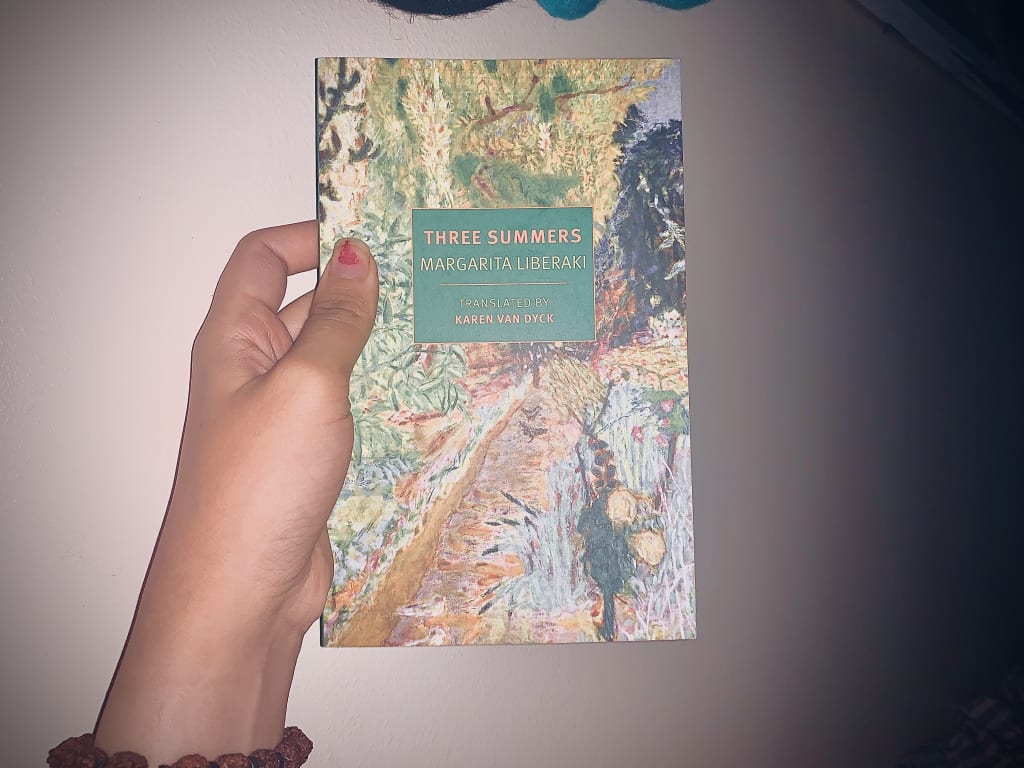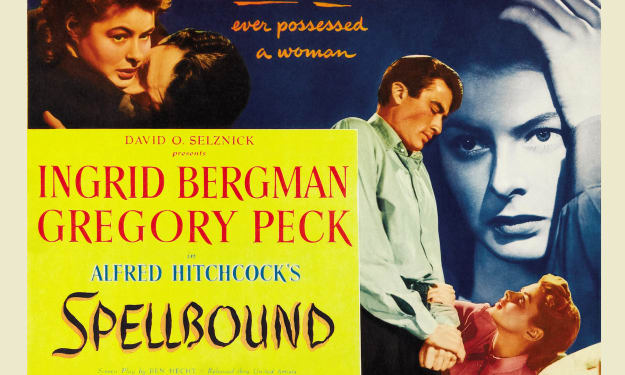Book Review: "Three Summers" by Margarita Liberaki
4/5 - Three sisters over three summers in three very different lights...

“Memories… memories. The air is heavy with them. I can’t stand it anymore. I no longer fit in that big room with the piano, the little boxes of seeds, the peacock embroidery. I run outside and lie down on the grass. I look up at the moon between the two eucalyptuses; it touches the ledge of the cistern, and I can see the silhouette of a frog in its circle of light. But the frog is not on the moon. Like me, it is on the ground looking up.”
One of the many grand quotations by Margarita Liberaki. “Three Summers” was a Greek Text published in the mid-40s but has since been mostly forgotten until this beautiful translation by Karen Van Dyck in the mid-90s for New York Review Books. The book is about three sisters, one of which is twenty and the other two who are eighteen and sixteen respectively. They live with their mother and aunt. The mother is divorced from a father who had affairs with other women and the aunt is unmarried. The grandmother, though we don’t meet her, is a woman of scandal and it is suggested that she ran away with another man in the midst of being married to the grandfather.
It seems to me as well that gardens is an important theme in the book. The whole text is narrated by the youngest sister, her name is Katerina and her garden is spontaneous and not really over-the-top as the others are. The middle sister’s garden is wild and rapid. It contains rare trees and plants. Whereas the eldest one is organised and her garden is useful for planting things that can be eaten and harvested. Obviously, this is a metaphor for sexuality and pregnancy. The older the woman is, the more mature she will be about her sexual statuses. However, the scandal of their family, especially the grandmother, seems to lurk around beneath the surface and throws them off track once again. It’s like everything is going perfectly fine and then, someone brings up the grandmother and how she is practically a fantastical and fearsome character. Untamed as she was, the girls are told not to wind up like her but they find her legend intriguing. This is the very thing turning them around constantly.
Togetherness is also a theme and though I think that these two themes/symbols are pretty typical of novels of this type, I also think there is a right and wrong way of doing them. In this book, they are explored in a way which echoes the older feminine novels of Charlotte Bronte and Jane Austen, whilst allowing the expansion of Sylvia Plath and Shirley Jackson which spins them into the psychological where women are the centre of their own conscience. The togetherness is presented by the sisters and their will to remain a part of each other over the course of the three years that this book takes place. Take a look at this quotation:
"The houses were closer together again here. About forty all in a clump, crowded together out of loneliness, like people. The gardens were beautiful this year. The heavy rains that winter had done them good. They were full of green and the trunks of the trees were shiny. Tiny tomatoes were beginning to appear. You could already see the yellow stamen on the male pistachio trees, and the female ones waiting. The males would go to the females. All the females could do was ready their juices, receive the male and bear fruit. They waited, in the burning heat, sensitive to any gust of wind that might bring them the seed."
The book is written beautifully and there is no real sense of cliché in the way the women were being presented to us. There was always another side we had to discover, especially regarding the eldest daughter, Maria. Maria seems to be the enigmatic character that narrator Katerina can never figure out and even though they only have four years between them, it sometimes seems like Maria is years and years older than her. It seems like Maria can be both uprising female rebellion and mothering figure at the same time and we are forced to sit back and watch as one battles the other.
About the Creator
Annie Kapur
200K+ Reads on Vocal.
Secondary English Teacher & Lecturer
🎓Literature & Writing (B.A)
🎓Film & Writing (M.A)
🎓Secondary English Education (PgDipEd) (QTS)
📍Birmingham, UK






Comments
There are no comments for this story
Be the first to respond and start the conversation.